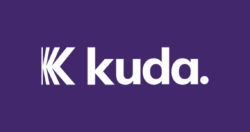
What is mortgage insurance and how does it work?
Mortgage insurance brings the gamble down to the bank of making a credit to you, so you can fit the bill for an advance that you could not in any case have the option to get.
Regularly, borrowers making an initial investment of under 20% of the price tag of the home should pay for mortgage insurance. Mortgage insurance likewise is regularly expected on FHA and USDA advances. Mortgage insurance brings the gamble down to the moneylender of making a credit to you, so you can meet all requirements for an advance that you could not in any case have the option to get. Yet, it builds the expense of your credit. Assuming you are expected to pay mortgage insurance, it will be remembered for your all-out regularly scheduled installment that you make to your moneylender, your expenses at shutting, or both.
About mortgage insurance
Mortgage insurance safeguards the moneylender, not you
Mortgage insurance, regardless of what kind, safeguards the moneylender – not you – if you fall behind on your installments. If you fall behind, your FICO rating might endure and you can lose your home through dispossession.
There are a few various types of credits accessible to borrowers with wicked good installments. Contingent upon what sort of credit you get, you’ll pay for mortgage insurance in various ways:
Advanced sorts and mortgage insurance
Typical mortgage
On the off chance that you get a Standard mortgage, your moneylender might sort out mortgage insurance with a privately owned business. Confidential mortgage insurance (PMI) rates fluctuate by initial installment sum and FICO assessment however are for the most part less expensive than FHA rates for borrowers with great credit. Most confidential mortgage insurance is paid month to month, with practically zero beginning installment expected at shutting. In specific situations, you can drop your PMI.
Government Lodging Organization (FHA) advance
On the off chance that you get a Government Lodging Organization (FHA) credit, your mortgage insurance expenses are paid to the Bureaucratic Lodging Organization (FHA). FHA mortgage insurance is expected for all FHA credits. It costs a similar regardless of your FICO rating, with just a slight expansion in cost for upfront installments under five percent. FHA mortgage insurance incorporates both a forthright expense, paid as a component of your end costs, and a month-to-month cost remembered for your regularly scheduled installment.
On the off chance that you need more money close by to pay the forthright expense, you are permitted to fold the charge into your mortgage as opposed to paying it using cash on hand. Assuming you do this, your advance sum and the general expense of your credit will increment.
US Division of Farming (USDA) credit
If you get a US Division of Horticulture (USDA) credit, the program is like the Government Lodging Organization, yet commonly less expensive. You’ll pay for the insurance both at shutting and as a feature of your regularly scheduled installment. Like with FHA advances, you can fold the forthright part of the insurance expense into your mortgage as opposed to paying it from cash on hand, yet doing so increments both your credit sum and your general expenses.
Division of Veterans’ Issues (VA)- upheld credit
On the off chance that you get a Division of Veterans’ Undertakings (VA)- upheld credit, the VA ensure replaces mortgage insurance, and works in basically the same manner. With VA-supported credits, which are advances expected to help servicemembers, veterans, and their families, there is no month-to-month mortgage insurance expense. Notwithstanding, you will pay a forthright “financing expense.” how much does that charge differ in light of:
Your kind of military assistance
Your initial investment sum
Your inability status
Whether you’re purchasing a home or renegotiating
Whether this is your most memorable VA credit, or you’ve had a VA advance previously
Like with FHA and USDA credits, you can fold the forthright expense into your mortgage as opposed to paying it from cash on hand, yet doing so increments both your advance sum and your general expenses.
Tip
Whenever you’ve taken care of a portion of your credit, you might be qualified to drop your mortgage insurance. Assuming you can drop, you will not need to pay the month-to-month cost. Get familiar with dropping your mortgage insurance.
Be careful with “piggyback” second mortgages
As a choice for mortgage insurance, a few banks might offer what is known as a “piggyback” second mortgage
This choice might be showcased as being less expensive for the borrower, however, that doesn’t guarantee to mean it is. Continuously look at the complete expense before settling on the last choice. Dive deeper into piggyback second mortgages.






